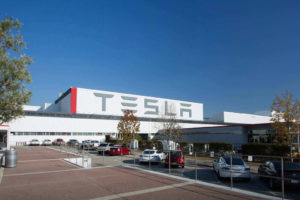Ever find yourself scrolling through job listings, wondering if that dream gig at Tesla matches your salary aspirations? You’re not alone. The myth shrouding tech giant payslips is thicker than a foggy morning in San Francisco.
Read on to get the solid numbers and insights on what Tesla’s cell engineers are really taking home.
Quick Takeaways:
- Tesla cell engineers can earn competitive salaries with bonuses and stock options that grow with the company’s success.
- A higher salary may be negotiated by understanding industry standards, accounting for your unique skills, and recognizing market demands.
- To become a Tesla cell engineer, one should pursue relevant higher education, gain hands-on experience, and exhibit passionate alignment with Tesla’s sustainable vision.
What Does a Tesla Cell Engineer Actually Do?
A cell engineer at Tesla is akin to a maestro in an orchestra, harmonizing various components to create the power-packed performance of Tesla’s battery technology. These technical wizards are tasked with designing, developing, and refining the lithium-ion cells that are the heartbeat of Tesla’s electric vehicles and energy storage systems.
Their role is critical—they dive deep into material science, electrical engineering, and chemical engineering to push the boundaries of battery performance, longevity, and safety. This isn’t just a job; it’s a mission, as Tesla isn’t merely selling cars—it’s accelerating the world’s transition to sustainable energy. The innovation and improvements driven by cell engineers are fundamental to Tesla’s vision, affecting everything from the range and efficiency of the vehicles to the overall sustainability of the energy systems.
How Does Tesla Stand Out in Terms of Salaries?
When it comes to compensation, Tesla does things a bit differently, and it’s not shy about leading the pack. While salaries are competitive within the industry, it’s the whole package that often sets Tesla apart.
Tesla’s compensation packages stand out due to:
- Stock options: Tesla has made headlines for its lucrative stock options, enabling engineers to share in the company’s financial success.
- Bonuses: Their performance-based bonus structure can significantly boost one’s earnings, as hitting targets can mean hitting the jackpot.
- Unique perks: Expect the unexpected, from a culture that revolves around innovation to opportunities to work on projects that are literally out of this world (hello, SpaceX!).
A Tesla cell engineer’s total compensation could involve these unique incentives that not only sweeten the deal but also align personal success with the company’s ambitious goals.
What Factors Influence a Cell Engineer’s Salary at Tesla?
Like most specialized careers, a Tesla cell engineer’s paycheck isn’t just a number pulled from a hat; it’s a reflection of a variety of factors that come into play.
- Experience: With more time in the trenches comes greater pay. A veteran cell engineer is likely to command a higher salary than a fresh-out-of-college newcomer.
- Education: Those wielding advanced degrees in relevant fields might see their expertise rewarded with higher starting salaries.
- Location: Living in the heart of the tech boom, Silicon Valley, often translates to a fatter paycheck to match the cost of living. But working at one of Tesla’s expanding number of facilities worldwide might influence compensation differently.
On top of these, Tesla often entices talent with the prospect of bonuses and stock options. These can be a game-changer, potentially eclipsing the base salary over time and underscoring Tesla’s ethos of tying personal financial success to the company’s overall performance.
By understanding these factors, potential candidates can negotiate their way to a salary that energizes them as much as the cells they’ll be engineering.
Can You Negotiate Your Salary as a Tesla Cell Engineer?
You’ve aced the interviews and impressed the hiring managers at Tesla — congratulations are in order! Now, the moment of truth arrives with the salary offer. If you find yourself wondering whether there’s wiggle room to negotiate that number, the answer is: Yes, absolutely!
Negotiating your salary is not just common; it’s an expected part of the process for many professionals, including cell engineers. Tesla, like any forward-thinking company, knows the value of securing top talent and may be open to negotiation to ensure they get the crème de la crème.
Here’s how you can gear up for that negotiation:
Do Your Homework: Before you can argue for a higher salary, you need to know what’s fair. Websites like Glassdoor and PayScale can provide insights into what Tesla cell engineers typically earn. This helps you set a benchmark.
Understand Your Value: If you’ve got a track record of success or unique skills that are in high demand, you’ve got leverage. Be ready to articulate how your expertise can benefit Tesla specifically.
Market Trends Matter: The tech and automotive industries are in constant flux, and demand for skilled cell engineers is high. If the market’s hot, your chances of negotiating a better salary increase.
Time It Right: If the initial offer is made verbally, express your enthusiasm for the role, but ask to see the full package in writing before you dive into negotiations.
Be Smart, Not Greedy: There’s a fine line between negotiating and haggling. Aim for a respectful dialogue that underscores your excitement about the opportunity while addressing your compensation expectations.
Remember, negotiation is a two-way street. It’s about finding the sweet spot where both you and Tesla see value. So, keep it professional and aim to create a win-win situation.
How Do You Become a Tesla Cell Engineer?
Landing a job as a cell engineer with an industry leader like Tesla is like hitting the jackpot for many in the field. So, what’s the secret sauce to get there? Let me walk you through the recipe for success:
Education Is Key: Start with a strong foundation; a bachelor’s degree in chemical engineering, materials science, or a related field is almost always a must-have. Consider topping it off with a master’s or PhD if you’re really aiming for the stars.
Garner Experience: Hands-on experience is gold. Internships or co-op programs during your studies can provide you with a sneak peek into the industry and teach you practical skills that complement your theoretical knowledge.
Continuous Learning: Tesla looks for lifelong learners. Stay abreast of the latest advancements in battery technology and lean into any opportunity for professional development.
Specific Skillsets: Excel in areas such as electrochemistry, battery design, or manufacturing processes. Tesla particularly values engineers with a knack for innovation and problem-solving.
Showcase Your Passion: Let your enthusiasm for renewable energy and sustainability shine through. Tesla isn’t just looking for employees; they’re looking for visionaries who share their mission of accelerating the world’s transition to sustainable energy.
Network: Attend industry conferences, join professional groups, and don’t shy away from reaching out to current Tesla employees on LinkedIn. A referral can sometimes open doors that a resume alone cannot.
A Tip Most Miss: Get familiar with Tesla’s proprietary technology and methodology. One unique way to stand out is to thoroughly understand their patents and public domain publications. Engage in forums or discussions related to Tesla’s cell technology, and showcase your insights during interviews.
Landing a gig at Tesla as a cell engineer isn’t about ticking boxes – it’s about showing that you’re the whole package. The ideal candidate is not only technically proficient but also thrives in fast-paced environments, thinks outside the box, and is as passionate about Tesla’s mission as Musk is about colonizing Mars.
Preparing for a career as a Tesla cell engineer is much like preparing a rocket for launch: it requires precision, expertise, and a fair amount of fuel in terms of passion and dedication. Buckle up; it’s an electrifying ride!
If you’re aiming for a role at the cutting edge of battery tech, keep these pointers in mind—they just might help you secure a spot among the brilliant minds shaping our sustainable energy future.





